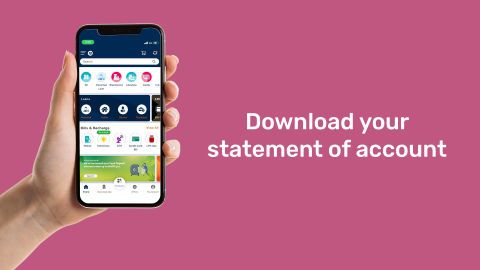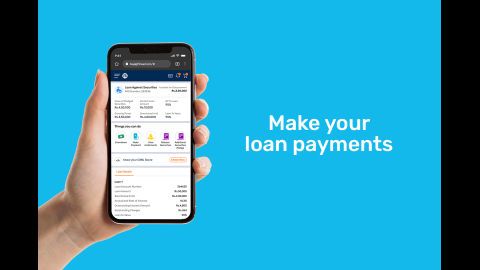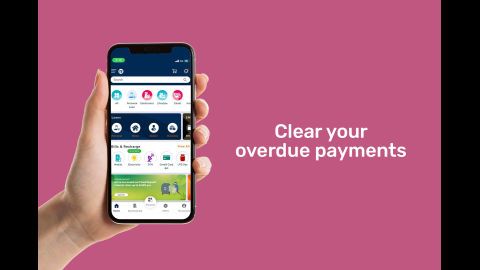What is an e-Mandate?
e-Mandate is a digital payment service introduced by the RBI and National Payments Corporation of India to streamline the payments process for companies. This process serves as the underlying infrastructure for firms to gather payments without manual intervention.
Electronic Mandate (eMandate) works as a standing instruction that allows banks to debit the specified amount from your bank account. Moreover, it is convenient for companies and individuals to manage their scheduled payments.
Previously this mandate was available offline, but the online process has made it more convenient. Now that you are aware of an e-Mandate definition, read on to know more about the details of this process.
How to register for Bajaj Finserv eMandate?
Step 1: Log in to Bajaj Finserv Service Portal
Step 2: Select the e-Mandate option
Step 3: Go through all the personal details and click on the ‘proceed’ option
Step 4: Validate your bank account information, select your preferred registration mode, read through the disclaimers, and then click on the ‘submit’ option
Step 5: If you decide to go ahead with the OTP option, enter the code received on your registered mobile number and click on ‘Submit’
Alternatively, if you select the ‘debit card/ net banking’ option, you will be redirected to the ‘Digio Page’. Here you can click on your mode of registration, read the disclaimer and then submit it. Digio is an accredited aggregator of the e-Mandate process via NPCI.
Step 6: Once you complete either of the processes mentioned above, you will be redirected to your preferred bank’s website.
- With net banking: Enter your login details and OTP to authenticate your e-Mandate for Bajaj Finserv using the bank’s website
- With debit card: To complete the Bajaj Finserv e-Mandate online with a debit card, provide your debit card details and OTP using the bank’s website
Step 7: Once this mandate is authenticated successfully, your bank will approve it in due course
After you complete the steps mentioned above, your application will be registered with your respective banks. Afterward, you can see the Bajaj Finserv e-Mandate status in your Bajaj Finserv account.
Furthermore, you should also know you have the liberty to cancel this mandate at any given moment. You can just get in touch with your bank and complete this process. Contrarily, an organisation can also cancel it, if required, by submitting a form with respective banks.
Features and benefits of eMandate
The e-Mandate benefits that you can enjoy by registering with Bajaj Finserv or any other financial institution include –
-
Organised payment process
E mandate enables banks to debit funds from your account when and if required. Hence, it organises your periodic payments like EMIs, various investments, and others.
-
More transparency
The entire process of this eMandate registration is completed online, which increases its transparency. Moreover, there are no hidden charges associated with it, further boosting its credibility.
-
Helps in attracting customers
E mandate eases the payment process for companies as well. Organisations now get their funds on time, which reduces the hassle of chasing a customer for payment. It enables an automated payment system, increasing the convenience that attracts more customers.
-
Simple online processing
The process of online mandate registration is a simple and hassle-free one. As specified in the steps above, you can apply for it via the Bajaj Finserv website and approve it using your bank account. After that, you can stop worrying about making payments or receiving any and avoid any issues.
-
Higher flexibility
With this online Mandate facility, companies and users have greater flexibility. Businesses can choose not to debit amounts if required, or users can select to block any payments if and when needed.
-
A secured facility
Last but not least, eMandate is a secured transaction method. The central framework responsible for enabling this facility is guided by the latest RBI regulations related to safety. The Bajaj Finserv NACH Mandate solution providers also maintain their PCI compliance strictly to safeguard customer data.
Eligibility For E Mandate
The e-Mandate eligibility parameters include the following –
- You should have a valid Aadhaar card, and your bank account and Aadhaar card must be linked for this purpose
- The financial institution in contention here must be registered to offer NACH services
The documents required for setting up an e-Mandate are –
- A duly filled e-Mandate form, which is available online these days
- A valid Aadhar card
- A bank account
- A registered and working mobile number linked to your bank account and Aadhaar card
Alongside learning the eligibility and documents, you should also understand the reasons behind the rejection of an e Mandate request. Here are the details
- If your bank does not provide a NACH service
- If you enter incorrect bank account details
- If you provide the wrong folio number or associated information
Types of e-Mandates
An e-Mandate process also has two classifications that allow it to work both ways. Here are the particulars –
1. Debit mandate
After its approval, this mandate will allow banks to debit the required amount from your account periodically for various payments. For instance, if you have started a monthly SIP of Rs. 1,000, in that case, the bank will deduct this amount every month for this investment purpose. Thus, your chances of missing out on payments reduce.
2. Credit mandate
Like the debit mandate, a credit mandate will ensure that you receive all your payments on time and automatically.
Registering and approving an e-Mandate lets you skip the headache of remembering each payment and avoid late fee-related issues. However, before approving, one goes through the terms and conditions to make a better decision.
For any inquiries regarding e-Mandate, feel free to contact customer care. Dial the Bajaj Finance customer care number to speak with a representative who will assist you promptly.
How Do E-Mandates Work?
E-mandates, or electronic mandates, facilitate the automatic and recurring transfer of funds from a customer's bank account to a service provider or lender, authorised through digital consent. When setting up an e-mandate, customers authenticate the process using internet banking or debit card details, often with additional security steps such as OTP (One-Time Password) verification. Once authorised, the e-mandate enables regular payments without manual intervention, ensuring timely transactions for loans, subscriptions, or utility bills. E-mandates streamline payment processes, reduce administrative tasks, and minimise the risk of missed payments. They are governed by regulatory frameworks to ensure secure and transparent operations, enhancing customer convenience and financial management.
Documents required to set up an Electronic Mandate (E-mandate)
To set up an Electronic Mandate (E-mandate), you typically need several key documents. First, you will require a valid government-issued proof of identity, such as a passport, Aadhaar card, or driving licence. Additionally, proof of address, such as a utility bill, bank statement, or rent agreement, is necessary. You will also need your bank account details, including the account number and IFSC code, and access to your internet banking credentials or debit card information for authentication purposes. Some service providers may require a signed physical or digital mandate form. Ensure you have your mobile number and email address registered with your bank for OTP (One-Time Password) verification. These documents and details collectively enable secure and seamless setup of an e-mandate, facilitating automatic and recurring payments.
Frequently asked questions
There are no limits on the number of e-Mandates you can set up via one bank account.
If you have an insufficient balance in your bank account, it will fail like any other transaction. In the case of payments, a failed transaction may bear additional costs.
Yes, it is possible to set up an e-Mandate to collect recurring payments. You can fill up your credit mandate request through your bank account and associated organisation and then approve it to complete this process. After that, you will receive your funds on time.
It takes a maximum of 2 days for an e-Mandate for Bajaj Finserv to process and get approval.
An e-Mandate is different from an ECS mandate owing to various reasons. ECS mandates are completed offline by sending documents physically. Whereas the e-Mandate system is an online one, it reduces the total time required for this process. Moreover, an e-Mandate can be accessed anywhere, anytime, which is not the case for an ECS mandate. Lastly, the associated costs for an e-Mandate are lower than an ECS one.
An e-Mandate is needed to streamline the payment process. It helps both users and companies by automating this system and eliminating mistakes due to manual interventions.
To settle your loan faster, make extra payments towards the principal amount whenever possible. This reduces the outstanding balance and interest over time. Opt for bi-weekly instead of monthly payments, which can shorten the loan term. Consider refinancing to a lower interest rate if available. Monitor your spending, create a budget, and allocate extra funds towards your loan. Communicate with your lender for any specific options they may offer for early repayment.
E-NACH (Electronic National Automated Clearing House) and e-mandate both facilitate automatic recurring payments. E-NACH is a service provided by the National Payments Corporation of India (NPCI) and is used for bulk electronic transactions across banks. E-mandate, on the other hand, is a broader term that includes various electronic authorisation methods for recurring payments, including e-NACH. Essentially, e-NACH is a specific type of e-mandate with a focus on high-volume transactions.








